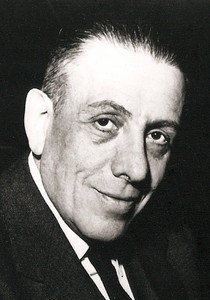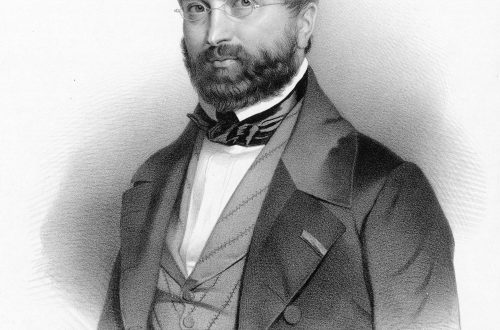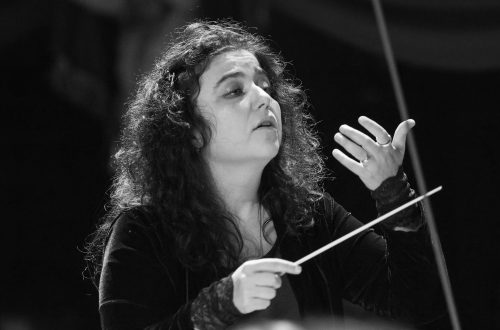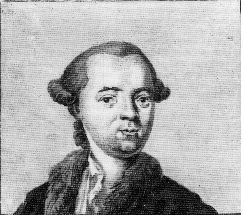
Francis Poulenc |
Frances Poulenc
My music is my portrait. F. Poulenc

F. Poulenc is one of the most charming composers that France gave to the world in the XNUMXth century. He entered the history of music as a member of the creative union “Six”. In the “Six” – the youngest, barely stepped over the threshold of twenty years – he immediately won authority and universal love with his talent – original, lively, spontaneous, as well as purely human qualities – unfailing humor, kindness and sincerity, and most importantly – the ability to bestow people with his extraordinary friendship. “Francis Poulenc is music itself,” wrote D. Milhaud about him, “I don’t know of any other music that would act just as directly, would be so simply expressed and would reach the goal with the same infallibility.”
The future composer was born in the family of a major industrialist. Mother – an excellent musician – was the first teacher of Francis, she passed on to her son her boundless love for music, admiration for W. A. Mozart, R. Schumann, F. Schubert, F. Chopin. From the age of 15, his musical education continued under the guidance of pianist R. Vignes and composer C. Kequelin, who introduced the young musician to modern art, to the work of C. Debussy, M. Ravel, as well as to the new idols of the young – I. Stravinsky and E. Sati. Poulenc’s youth coincided with the years of the First World War. He was drafted into the army, which prevented him from entering the conservatory. However, Poulenc appeared early on the musical scene in Paris. In 1917, the eighteen-year-old composer made his debut at one of the concerts of new music “Negro Rhapsody” for baritone and instrumental ensemble. This work was such a resounding success that Poulenc immediately became a celebrity. They talked about him.
Inspired by the success, Poulenc, following the “Negro Rhapsody”, creates the vocal cycles “Bestiary” (on the st. G. Apollinaire), “Cockades” (on the st. J. Cocteau); piano pieces “Perpetual Motions”, “Walks”; choreographic concerto for piano and orchestra “Morning Serenade”; ballet with singing Lani, staged in 1924 in S. Diaghilev’s entreprise. Milhaud responded to this production with an enthusiastic article: “The music of Laney is just what you would expect from its author… This ballet is written in the form of a dance suite… with such richness of shades, with such elegance, tenderness, charm, with which we are so only the works of Poulenc generously endow … The value of this music is enduring, time will not touch it, and it will forever retain its youthful freshness and originality.
In the early works of Poulenc, the most significant aspects of his temperament, taste, creative style, a special purely Parisian coloring of his music, its inextricable connection with the Parisian chanson, already appeared. B. Asafiev, characterizing these works, noted “clarity … and liveliness of thinking, fervent rhythm, accurate observation, purity of drawing, conciseness – and concreteness of presentation.”
In the 30s, the composer’s lyrical talent flourished. He enthusiastically works in the genres of vocal music: he writes songs, cantatas, choral cycles. In the person of Pierre Bernac, the composer found a talented interpreter of his songs. With him as a pianist, he toured extensively and successfully throughout the cities of Europe and America for more than 20 years. Of great artistic interest are Poulenc’s choral compositions on spiritual texts: Mass, “Litanies to the black Rocamadour Mother of God”, Four motets for the time of repentance. Later, in the 50s, Stabat mater, Gloria, Four Christmas motets were also created. All compositions are very diverse in style, they reflect the traditions of French choral music of various eras – from Guillaume de Machaux to G. Berlioz.
Poulenc spends the years of World War II in besieged Paris and in his country mansion in Noise, sharing with his compatriots all the hardships of military life, deeply suffering for the fate of his homeland, his people, relatives and friends. The sad thoughts and feelings of that time, but also the belief in victory, in freedom, were reflected in the cantata “The Face of a Man” for double choir a cappella to verses by P. Eluard. The poet of the French Resistance, Eluard, wrote his poems in the deep underground, from where he secretly smuggled them under an assumed name to Poulenc. The composer also kept secret the work on the cantata and its publication. In the midst of the war, this was an act of great courage. It is no coincidence that on the day of the liberation of Paris and its suburbs, Poulenc proudly displayed the score of The Human Face in the window of his house next to the national flag. The composer in the opera genre proved to be an outstanding master-dramatist. The first opera, The Breasts of Theresa (1944, to the text of the farce by G. Apollinaire) – a cheerful, light and frivolous buff opera – reflected Poulenc’s penchant for humor, jokes, and eccentricity. 2 subsequent operas are in a different genre. These are dramas with deep psychological development.
“Dialogues of the Carmelites” (libre. J. Bernanos, 1953) reveals the gloomy story of the death of the inhabitants of the Carmelite monastery during the Great French Revolution, their heroic sacrificial death in the name of faith. “The Human Voice” (based on the drama by J. Cocteau, 1958) is a lyrical monodrama in which a lively and quivering human voice sounds – the voice of longing and loneliness, the voice of an abandoned woman. Of all the works of Poulenc, this opera brought him the greatest popularity in the world. It showed the brightest sides of the composer’s talent. This is an inspired composition imbued with deep humanity, subtle lyricism. All 3 operas were created based on the remarkable talent of the French singer and actress D. Duval, who became the first performer in these operas.
Poulenc completes his career with 2 sonatas – the Sonata for oboe and piano dedicated to S. Prokofiev, and the Sonata for clarinet and piano dedicated to A. Honegger. Sudden death cut short the life of the composer during a period of great creative upsurge, in the midst of concert tours.
The composer’s heritage consists of about 150 works. His vocal music has the greatest artistic value – operas, cantatas, choral cycles, songs, the best of which are written to the verses of P. Eluard. It was in these genres that the generous gift of Poulenc as a melodist was truly revealed. His melodies, like the melodies of Mozart, Schubert, Chopin, combine disarming simplicity, subtlety and psychological depth, serve as an expression of the human soul. It was the melodic charm that ensured the lasting and enduring success of Poulenc’s music in France and beyond.
L. Kokoreva
- List of major works by Poulenc →





